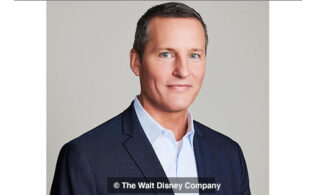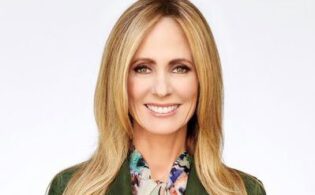PREMIUM: World Screen speaks to the chairmen and CEOs of the Fox Television Group, Dana Walden and Gary Newman, who are being honored this year as the Personalities of the Year at MIPCOM.
WS: In all the years you have overseen the studio, how have you viewed the U.S. television landscape and what have your priorities been?
NEWMAN: Our view hasn’t really changed. It’s an increasingly cluttered market. There is more programming on the air now than ever before. There are more outlets, platforms and opportunities for people to see original programming and also to consume library programming. Our priorities really haven’t changed. [They are] to create big, bold programs that break through the clutter. To play it safe just isn’t an option given how competitive the marketplace is.
WS: How have you worked with Mark Kaner and Marion Edwards at Twentieth Century Fox Television Distribution?
WALDEN: Starting a decade ago, maybe a little bit longer, we decided to shift our strategy from being what we like calling “network order-takers” to suppliers and people who oversaw the development of content. Just because a network was interested in a different genre of programming didn’t necessarily mean that it made sense for our company. We started to rely very heavily on Mark and Marion and their very talented team not necessarily to direct our development, but their insights into the international marketplace have been so helpful to us as content creators. As Gary said, we’ve been rewarded in such an incredible way for taking big swings and for doing shows that defied U.S. trends. We’ve never been a studio that relied heavily on the development of procedurals, or any specific form of programming, just because that made good business sense. We’ve looked to our creators to develop their passion and to break through the clutter with ideas that are distinctive, original and bold. Those are the shows that have worked most successfully in the international marketplace. It’s become a calling card of our studio. We got to that place by listening to Mark and Marion about trends around the world and which of our shows were resonating with the greatest degree of enthusiasm with our international clients. So it’s been an incredibly rewarding relationship. It’s been one that has benefited our creative process. Ultimately, our shows start with creative, but we’re trying to speak to a global audience, and when a show like Empire or Glee or The X-Files explodes around the world, that means it’s working in terms of our strategy.
WS: What are some of the lessons you learned from some of the riskier shows you decided to produce?
NEWMAN: Our riskiest shows also tend to provide us with our greatest returns. These are shows that are unlike others that are on our air. If you look at our studio historically, going back to the animated series The Simpsons and Family Guy, these have been incredibly lucrative to the studio. Shows like 24, Glee, Prison Break and, most recently, Empire feel like shows that nobody else was doing. They break through with the audience and ultimately they break through in ways that give us great financial returns as well.
WS: With as much as you had on your plates, what motivated the decision to want to run FOX?
WALDEN: It was temporary insanity! Then it was really an inevitable path for us given the way the marketplace has changed and how much networks are relying on their own content producers to supply a good amount of programming. Our mandate on both sides of the organization is for these two companies to remain independent. While there is a strong connection and alignment [between the studio and the network] and clearly we are looking to our studio to develop and produce great shows for the network, we are also looking to our studio to produce for third-party networks and for our network to buy from third-party studios. After so many years of working on our shows at the studio and investing so much of ourselves and the passion of our creators into the series that we develop, the idea of not having to just turn those shows over to another organization and not step away from the process was really appealing to us. Having the ability to now schedule, market, platform and meaningfully be a part of the cultural conversation about our shows has been very rewarding. Empire, Gotham and The Last Man on Earth last season were shows we prioritized and we invested in heavily from the marketing side of our business. We scheduled them in as strategic and opportunistic a way as possible. When you are solely operating as a supplier, you don’t get to be part of those conversations.
WS: What is the role of a broadcast network today, and how much risk-taking can a network allow itself?
NEWMAN: The role of a broadcast network hasn’t changed that much. With regards to risk, it’s not how much can you afford to take, but can you afford to play it safe at all. I think the answer is no. There is so much competition for people’s attention. People only have so many hours that they are going to devote to watching content, and you just have to be aggressive and bold and not play it safe. It all comes back down to what we learned at the studio over all those years: get in business with the most talented creators, support their vision and ultimately trust that the audience is going to find the show.
WS: People claim that in today’s environment shows like Hill Street Blues and Seinfeld would not remain on the air because series aren’t allowed enough time to find their voice or audience. Do you agree, and how much patience can you afford to give a show in today’s crowded environment?
WALDEN: The true answer is that nobody has a crystal ball. No one knows what would happen if those shows were on right now. If you were just looking at the trajectory of how long it took at those times in history to really establish those series as juggernauts, perhaps you could extrapolate that there is not that kind of opportunity right now.
We base our decisions on whether we are going to move forward on a show or not and how long we are going to give a show to catch on based on a lot of factors, not just ratings. Sometimes if it’s a show that we own there are financial factors that we can take into consideration. If it is a show that creatively our team has extraordinary passion for, we think a lot about that. Ultimately we are a collection of viewers, so when there is passion among the ranks here, it’s not different than finding a small pocket of viewers who have a lot of passion for a show, so we take that into consideration. We think about whether the shows are in the hands of creators that can help characters get richer and deeper. You have to look at a variety of different metrics now than you did in the past. Are people watching in a time-delayed manner? We have several shows whose ratings increase more than 100 percent over a seven-day period. That is still a measurement that is meaningful to us; it’s meaningful to our clients in the ad-sales side of our business.
Without a crystal ball I would say it’s much harder to stick with smaller, more character-driven, low-concept series that don’t have something that breaks through the content being exhibited right now. But lightning is captured in a bottle every once in a while. Sometimes, if there is a big enough creative point of view, even if it’s not a high-concept idea, you can get behind it.
WS: What were your expectations for Empire, and what kind of viewer reaction have you been getting?
NEWMAN: Our expectations were high from the inception of the project. It was a very big, exciting pitch that was special because it was such a specific world that Lee [Daniels, the creator of the show] in particular, but our other producers as well, pitched to us with such a great understanding of the characters and of their world. Probably the next stage at which it really started coming together was with the casting. When you saw the initial footage with actors like Taraji [P. Henson, who plays Cookie] and Terrence [Howard, who plays Lucious] and the rest, you just felt you had something that resonated. Of course, as high as our expectations were, they were really exceeded by the way the show performed on air. Over the weeks that the show was on air last season, we received phone calls and e-mails from so many people in the business, even our competitors, sending us notes saying this is great for broadcast television. One of the most notable things was the way in which the show grew week to week in live same-day viewing, which is not something you see happening at all. What it really spoke to is that our business model of putting episodes out a week at a time created an opportunity for fans of the show to get invested in it. The social networking that would occur while the show was on the air and in the days following were at record levels and our fans became our marketers. They would be telling their friends, either in person or online, how much they loved Empire, how great the characters were, how special a show it was, and that began feeding on itself, which really drove that show. If you look at a 30-day viewership of the finale, there were nearly 27 million viewers, and even months later, online we were seeing a half a million people viewing one or more episodes of Empire every week. It really was a phenomenon and a juggernaut that we don’t see very often. We feel very fortunate to have it.
WS: What upcoming shows from the studio or on the network are you excited about?
WALDEN: I would start with our new show from Ryan Murphy, Scream Queens. It has an extraordinary cast: Emma Roberts, Jamie Lee Curtis, Lea Michele, Nick Jonas, Keke Palmer, Ariana Grande, and it’s a mix of two of Ryan’s favorite genres of storytelling: horror and comedy. I would say it’s a bit of a mix of American Horror Story and Glee. It taps into what Ryan does incredibly well, which is a little bit genre bending, and there is a great whodunit mystery at the center of it. We’re also extremely excited about our two comedies on Tuesday night, Grandfathered and The Grinder, which star John Stamos and Rob Lowe. They are genuinely funny, very original shows that are helmed by top-notch comedy talent. We feel the time is right for some breakthrough comedy that people start talking about that would piggyback on what we did pretty successfully last year with Will Forte in The Last Man on Earth—series with comedy superstars at the center—and we have Jason Sudeikis joining that cast this year. You start with a comedy set after a virus has wiped out pretty much all of humanity! A pretty risky place to start a comedy, but it was embraced by critics and audiences. I am incredibly excited about the second season of Gotham, [which will feature] the rise of the villains. They are such original villains that feel like classic DC Batman mythology villains, but you get to know them in a way that you never could in a film. There would never be the time to peel back the layers of who these people are and to also see the growth of Bruce Wayne into who we know he’s going to be, Batman, along with James Gordon, who has taken a lot on his shoulders protecting all of Gotham. It’s a beautiful show, and the second season hits the ground running.
WS: What considerations go into deciding whether or not to bring back a show, like The X-Files or 24 or Prison Break?
NEWMAN: It’s hard to articulate a particular process. Fan passion is what drives this, and our belief that there is [sufficient] fan passion [for a given show]. You also have to have a feeling that the story isn’t completely told yet. A show like 24 is almost a perfect series to bring back because as the world changes you can put new issues through the real-time storytelling prism with a hero like Jack Bauer. Specifically, when we brought 24 back, it was just after the Julian Assange and WikiLeaks issues, and those became the spine of the last 24. It made for an incredibly compelling story. Prison Break had tremendous fan passion. These brothers were beloved and [the show’s creator] Paul Scheuring had an additional story that he wanted to tell. We have information about how the show has performed in the SVOD market and we know the show is incredibly popular and new generations are embracing it. It felt like the right opportunity, so we are in development on a Prison Break event series. Not only have fans been clamoring for The X-Files, but people have attempted to do their own versions of it on television for the decade or longer that it’s been off the air. We felt so fortunate we were able to align the stars and get everyone’s schedule to work out so we could make more episodes.
WS: When is a pilot the best option and when is going straight to series best, or is it entirely project driven?
WALDEN: It is entirely project driven. We really try to look at our shows and our development on a case-by-case basis; it’s not one-size-fits-all development. For us to go straight to series on a project means that a creator has a fully formed vision of where the show is going from the moment we sit with them. It is a little bit easier on a show that has anthological seasons. So, for example, Scream Queens is a show that will reset every year and tell stories set in a different environment and with potentially different actors. 24 felt like a miniseries event with a season-long arc and creators who were intimately familiar with the characters and the storytelling mechanism on that show. On the other hand, even for creators, having the ability to shoot a template prototype episode [a pilot] and see what works and what’s not working is always a huge benefit. There are cost considerations sometimes, if you are doing a limited event series where you can amortize the cost over multiple episodes; that’s beneficial. Every piece of development is unique and deserves its own process and thoughtful consideration about how to best move forward.
WS: Tell us about your partnership. There aren’t others like it in the television business.
NEWMAN: It’s a little bit of a unique structure to have a partnership. It’s been 16 years that we’ve been doing it this way. Like any relationship, it is really based on communication, trust, respect and, in our case, a lot of friendship. We had worked together for a few years before we were put together as partners, so we knew each other well. We had a real admiration for the things we had done at the company prior to running the studio. Over time the relationship evolved. I think at first we were both trying to be all things at all times, at all places. After a while, as we became more comfortable, we realized we would be much more effective if we divided and conquered. In order to really keep the partnership functional, it’s really about being very disciplined and devoted to the notion of communication. We talk a lot, whether it’s in the evening after work or on the weekends, just to bring each other up to speed on things we’re thinking about, meetings one or the other of us might have had during the week that we hadn’t had the chance to really explore with the other. What I always like to say about this business is that there is plenty of credit to spread around when something goes well, and it’s incredibly great to have someone else’s shoulder to lean on when things aren’t going well. So I wouldn’t trade this partnership for doing this or anything else solo, ever; it’s been one of the great professional experiences of my life.




